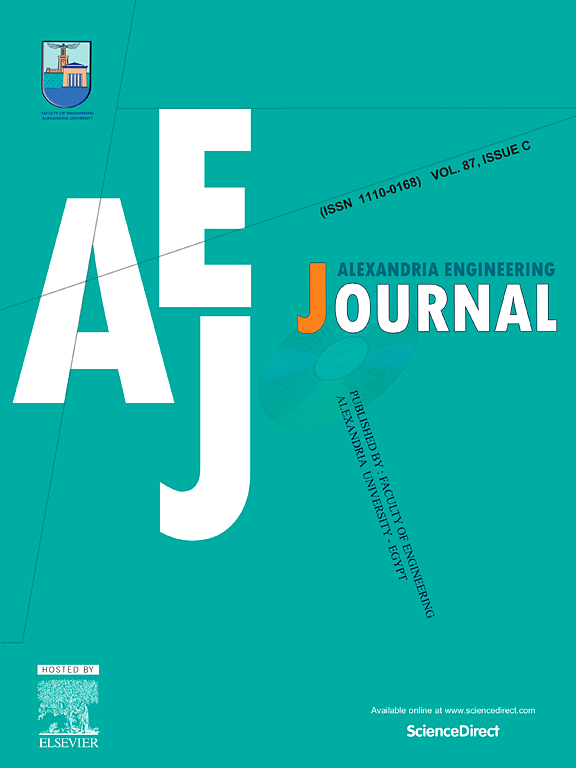预测可持续粮食供应和确保弹性的tcn -变压器混合模型
IF 6.8
2区 工程技术
Q1 ENGINEERING, MULTIDISCIPLINARY
引用次数: 0
摘要
由于人口膨胀、供应链中断和与气候有关的变化,主要问题出现在维持可持续粮食供应方面。传统的预测模型,如ARIMA、LSTM和GRU,不能处理动态波动和长期相关性。这些方法在应用于食品供应系统的变化模式时,往往具有准确性降低、计算成本高和泛化能力差的特点。基于上述局限性,本研究提出了一种混合TCN-Transformer模型,将时序卷积网络(Temporal Convolutional Networks, TCN)的强度与Transformer Attention相结合,提供准确、高效的食物供应预测。因此,该项目的主要目标是开发一种深度学习系统,该系统可以有效地处理大量的时间数据,同时保持短期和长期的依赖性。该方法是新颖的,因为它集成了TCN的因果卷积来提取序列模式。它使用Transformer Model的自关注机制来捕获跨时间步骤的复杂交互。混合设计可以实现更快的训练,提高可解释性,并比目前的方法更好的预测准确性。实验结果表明,该模型在预测精度、计算效率和适应性方面优于独立的TCN、ARIMA、LSTM和GRU模型。到目前为止,研究结果表明,基于深度学习的预测分析有助于改善食品供应链管理,减少食物浪费,使其具有环境弹性。本文章由计算机程序翻译,如有差异,请以英文原文为准。
Hybrid TCN-transformer model for predicting sustainable food supply and ensuring resilience
Major concerns occur in maintaining a sustainable food supply due to population expansion, supply chain interruptions, and climate-related changes. Traditional forecasting models, such as ARIMA, LSTM, and GRU, fail to deal with the dynamic fluctuations and long-range correlations. These methods often have reduced accuracy, high computational cost, and poor generalization when applied to shifting patterns in the food supply system. Based on the abovementioned limitations, this study proposes a Hybrid TCN-Transformer Model by combining the strength of Temporal Convolutional Networks (TCN) with Transformer Attention to provide accurate and efficient food supply prediction. Thus, the project's key objective is to develop a deep learning system that effectively handles massive quantities of temporal data while preserving dependence in short and long durations. The proposed method is novel since it integrates TCN's causal convolutions for extracting sequential patterns. It uses a Transformer Model's self-attention mechanism to capture the complex interactions across time steps. Hybrid design enables faster training, increased interpretability, and better prediction accuracy than current methods. Results from experiments have revealed that the suggested model surpasses the performance of the stand-alone TCN, ARIMA, LSTM, and GRU models in terms of accuracy of predictions, efficiency of computations, and adaptability. Findings thus far suggest deep learning-based predictive analytics has helped improve the food supply chain management by mitigating food wastage, making it environmentally resilient.
求助全文
通过发布文献求助,成功后即可免费获取论文全文。
去求助
来源期刊

alexandria engineering journal
Engineering-General Engineering
CiteScore
11.20
自引率
4.40%
发文量
1015
审稿时长
43 days
期刊介绍:
Alexandria Engineering Journal is an international journal devoted to publishing high quality papers in the field of engineering and applied science. Alexandria Engineering Journal is cited in the Engineering Information Services (EIS) and the Chemical Abstracts (CA). The papers published in Alexandria Engineering Journal are grouped into five sections, according to the following classification:
• Mechanical, Production, Marine and Textile Engineering
• Electrical Engineering, Computer Science and Nuclear Engineering
• Civil and Architecture Engineering
• Chemical Engineering and Applied Sciences
• Environmental Engineering
 求助内容:
求助内容: 应助结果提醒方式:
应助结果提醒方式:


